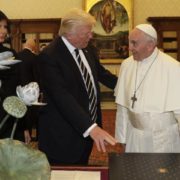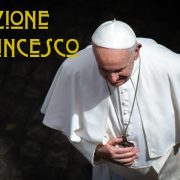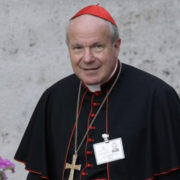The Pope threw his heart into Asia and sowed many religious and political seeds. The future is to grow them into plants. It won’t be easy, and an analysis of why is possibly needed on the eve of his next birthday. Many prayers for you, your Holiness.
One of Pope Francis’s primary legacy is that he opened up to Asia. He visited the continent more than all his predecessors combined. Thus, the task of the next Pope maybe even more challenging, as this momentum should translate into a real presence. Therefore, it might be time to draw some conclusions almost on the eve of his auspicious birthday, 88 (double fortune in Chinese).
Asia represents 60% of the world’s population, yet Catholics, excluding the Philippines (a sort of South American appendage), account for only about 2-3% of the total. Therefore, if the Church fails to expand its base in Asia over the next 50-100 years, the Holy See could become very different from what it has been until now.
It is not just demographics; it’s also about economic and political power. China’s rise might be somewhat hampered, but other powers are emerging, such as India and Indonesia, and there are ambitious countries like Vietnam and Thailand and the established presence of Japan or South Korea. None of them has a special relationship with the Church, as all Western countries, Catholic or not, have.
Furthermore, Pope Francis has opened a dialogue with diverse faiths, including Islam (a dialogue already underway for a thousand years), Hinduism, Buddhism, and Taoism. This dialogue must find substance to develop into something significant.
Historically, the Papacy was, for over a thousand years, organically linked to a European political project—the Holy Roman Empire and its counterpart in Constantinople. After the end of the Pontiff State in 1870, there was a period of limbo and uncertainty. Then, with the end of World War II, the Church became involved in the anti-communist crusade. The end of the Cold War in the 1990s brought new confusion about what the Church should do in the world.
Now, Pope Francis pushed the Church into a role of global mediation, coinciding with the decline of important post-World War II institutions like the United Nations. It’s unclear what will happen next. Despite its weight, Asia is under-represented in the UN, an institution mainly geared toward Europe.
In Asia, the Catholic Church has two strengths, viewed from an external, perhaps even pagan, perspective.
One is the Eucharist—a God who offers Himself to be consumed and sacrificed weekly or daily, offering His flesh and blood, thus interrupting the cycle of life and death. The cycle of life and death is a central theme in Hinduism, Buddhism, and Taoism. In Asia, therefore, the concept of the Eucharist—which offers a moment of contact with the divine, a moment of eternity, without requiring specific exercises of respiration—has a very strong appeal, whether one believes or not.
The appeal defies the deep-seated shamanistic feeling—present perhaps everywhere—that urges sacrifice or self-sacrifice to God. Here, instead, we have a God who sacrifices Himself for us. If presented to people of different cultures in its essence, this concept of the Eucharist can be more understandable than the complex traditional Catholic body of Greek culture-based theology. Catholicism may need a different theology that opens to the new without forgetting the past.
The second strength is a byproduct of modernity: confession. In Asia and the world, there is a widespread circulation of psychotherapeutic practices that objectively leave people somewhat alone—one leaves psychotherapy without specific forgiveness. It is a process in which one should forgive oneself. But why forgive oneself? If you can forgive yourself, why are you in therapy in the first place? Personal self-forgiveness seems insufficient.
Confession, on the other hand, offers a more vital concept—a relationship with the divine that goes through a human intermediary.
These are the strengths of Catholicism that future Popes could build upon.
Then there’s this Pope’s specific strength: the ability to speak to people’s hearts, regardless of anything else. He finds a tone, a music that touches people’s hearts. It transcends any question of the Gospel or theology. However, this might also mean creating distance: A) from the rest of the clergy, because not everyone can speak to people’s hearts as he does; and B) from traditional Church teachings, which rely on the preacher but possess a far more complex and nuanced body of knowledge adaptable to different people.
If the Church cannot speak to the hearts of Asians in a tone consonant with Asian religions and cultures, and with the new political sensibilities emerging in Asia, it may cast a shadow on the Church. Then any internal problems within the Church could become insignificant in comparison. The Catholic Church, once a universal religion, could become a religion of the West, thus profoundly betraying its nature.
Moreover, there are risky advantages of the Papacy in Asia. His criticism of capitalism has resonated strongly in many developing countries because it tapped into an older nationalist, Third Worldism, and anti-Western discourse. It has positively affected the Pope, suggesting he is not the voice of Wall Street and doesn’t represent capitalists’ interests.
However, the positive effect has introduced ambiguous elements. His criticism of “wild capitalism” has not been nuanced; it has been perceived simply as criticism of capitalism per se. However, the criticism of capitalism is, in fact, a criticism of modernity and development. Capitalism embodies modernity brought by the West to the entire world. Beyond all the evils we know, it has created an unprecedented miracle over the last two centuries, multiplying the world’s population tenfold (from around 800 million at the end of the 19th century to 8 billion today) and dramatically increasing life expectancy (from an average of 20-25 years to over eighty). It has also brought unprecedented benefits, such as a remarkable surge in technology.
In certain circles, the criticism of capitalism has been seen as a criticism of the West and modernity, providing a platform for anti-Western and anti-modern sentiments.
There is a positive element: the Church has gained a wider audience. However, this audience can be risky if it is not adequately managed. The Church, regardless of this Pope or his predecessors, perhaps should reconcile itself profoundly with modernity and recognize the overall positive value of capitalism precisely because it has increased life expectancy and improved living standards. Through an “invisible hand,” almost a Holy Spirit-like force, it has created opportunities that previously did not exist.
Marx criticized the primitive socialists who failed to see or acknowledge the positive innovations brought about by capitalism and sought to abolish it. He argued that one must move forward and embrace progress.
Perhaps the Church should take a similar stance, becoming, in a sense, classically “Marxist.” This means recognizing the profound positivity of modernity. It doesn’t mean blind and mindless support for capitalism, but also not its single-minded rejection. Supporting anti-modernity risks being very dangerous for the Church, as this approach has an element of wishful thinking, trying to bring the world back in time, something impossible.
Modernity brings the world together, creating a space that, despite its hurdles and bumps, is an unprecedented level playing field for everyone to engage with one another.
- In collaboration with Appia Institute.






